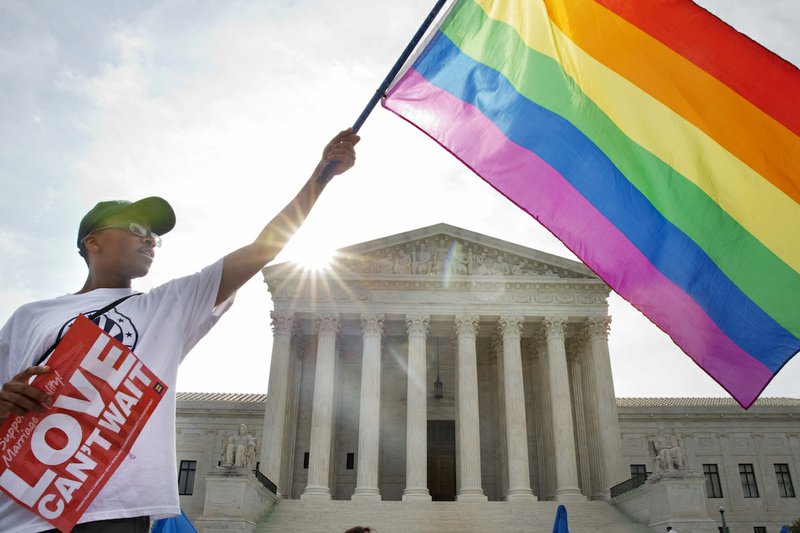WASHINGTON — The Supreme Court declared Friday that same-sex couples have a right to marry anywhere in the United States.
Gay couples already can marry in 36 states and the District of Columbia. The court's 5-4 ruling means the remaining 14 states, in the South and Midwest, will have to stop enforcing their bans on same-sex marriage.
The outcome is the culmination of two decades of Supreme Court litigation over marriage, and gay rights generally.
Justice Anthony Kennedy wrote the majority opinion, just as he did in the court's previous three major gay-rights cases dating back to 1996. It came on the anniversary of two of those earlier decisions.
"No union is more profound than marriage," Kennedy wrote, joined by Justices Ruth Bader Ginsburg, Elena Kagan, Sonia Sotomayor and Stephen Breyer. Chief Justice John Roberts wrote the dissent, joined by Justices Antonin Scalia and Clarence Thomas.
The ruling will not take effect immediately because the court gives the losing side roughly three weeks to ask for reconsideration. But some state officials and county clerks might decide there is little risk in issuing marriage licenses to same-sex couples.
The cases before the court involved laws from Kentucky, Michigan, Ohio and Tennessee that define marriage as the union of a man and a woman. Those states have not allowed same-sex couples to marry within their borders and they also have refused to recognize valid marriages from elsewhere.
Just two years ago, the Supreme Court struck down part of the federal anti-gay marriage law that denied a range of government benefits to legally married same-sex couples.
The decision in United States v. Windsor did not address the validity of state marriage bans, but courts across the country, with few exceptions, said its logic compelled them to invalidate state laws that prohibited gay and lesbian couples from marrying.
Read Saturday's Arkansas Democrat-Gazette for full details.
RELATED CONTENT
- http://www.arkansas…">Hutchinson, Rutledge say state will follow ruling
- http://www.arkansas…">Reactions to SCOTUS gay-marriage ruling
- http://www.arkansas…">Some counties hold back same-sex licenses
- http://www.arkansas…">First same-sex couple in Pulaski County married after ruling


